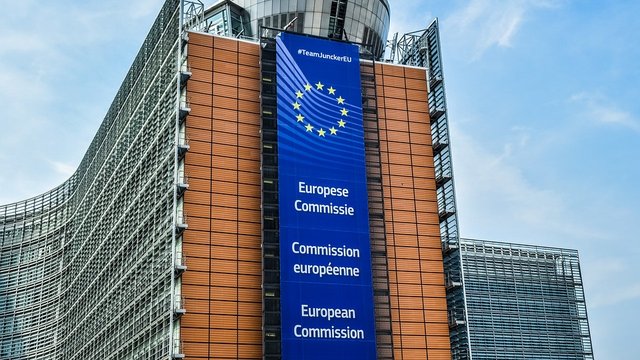European Commission adopts legislative proposal providing phase out of Russian gas, oil by end of 2027

The European Commission has adopted a legislative proposal aimed at phasing out Russian gas and oil imports by the end of 2027.
The decision was taken by the College of the European Commission on Tuesday in Strasbourg.
"The EU will gradually and effectively stop the import of Russian gas and oil by the end of 2027, under a legislative proposal put forward by the European Commission today. This will end the EU's exposure to market and economic security risks due to dependency on Russian fossil fuels, and ultimately boost the Union's energy independence and competitiveness," the European Commission said in a press release issued on Tuesday.
The EC detailed that the proposed Regulation provides for a phasing out of pipeline gas and liquefied natural gas (LNG) originating in the Russian Federation or exported directly or indirectly from the Russian Federation. It also proposes measures to contribute to the complete cessation of imports of Russian oil by the end of 2027. Member States will have to present diversification plans with precise measures and milestones for the gradual cessation of imports of Russian gas and oil.
"Under the envisaged gradual import ban, Russian gas imports under new contracts will be prohibited as of 1 January 2026. Imports under existing short-term contracts will be stopped by 17 June 2026, except those for pipeline gas delivered to land-locked countries and linked to long-term contracts which will be allowed until the end of 2027. Imports under long-term contracts will be stopped by the end of 2027," the press release explained.
Long-term contracts for LNG terminal services for customers from Russia or controlled by Russian companies will also be prohibited. "This will ensure the redirection of terminal capacities to alternative suppliers, ultimately increasing the resilience of energy markets. This phased approach will help to effectively stop Russian gas imports, while limiting the possible impact on energy prices in the Union and avoiding any risk to security of supply. The Commission will support Member States throughout the process. It will closely monitor, together with the EU Agency for the Cooperation of Energy Regulators (ACER), the progress and consequences of the gradual cessation of Russian gas and oil imports. In the event of a threat to the security of supply of one or more Member States, the Commission may take the necessary emergency measures," the EC detailed. The Regulation also contains provisions on increasing transparency, monitoring and tracing of Russian gas on EU markets, which will contribute to the effective implementation of the import ban.
"Under the proposed Regulation, companies holding gas supply contracts for Russian gas will have to provide information to the Commission. In addition, importers of Russian gas will have to provide customs authorities with all necessary information confirming the path of the imported gas from its actual origin up to the point of import into the Union," the statement said.
The next step should be the adoption of this Regulation by the European Parliament and the Council of the EU. Adoption in the Council will require a qualified majority. The Commission will continue to work closely with Member States to diversify efforts and improve infrastructure, especially those most affected.
The European Commission noted that this legislative proposal is in line with the REPowerEU Roadmap, which the Commission adopted last month. "It sets out a pan-European plan for a gradual and well-coordinated phase-out of Russian gas imports in a spirit of solidarity, while aiming for a clean transition. Today's proposal has been designed to preserve the EU's security of energy supply, while limiting any impact on prices and markets, as explained in the accompanying analysis," the press release said.
The EC detailed that the remaining Russian gas supplies can be phased out without significant economic impact or risks to security of supply, thanks to the availability of sufficient alternative suppliers on the global gas market, a well-interconnected Union gas market and the availability of sufficient import infrastructure in the EU. In addition, today's proposal contains built-in safeguards to respond to the real conditions of gas markets, while providing companies with a solid legal framework.







